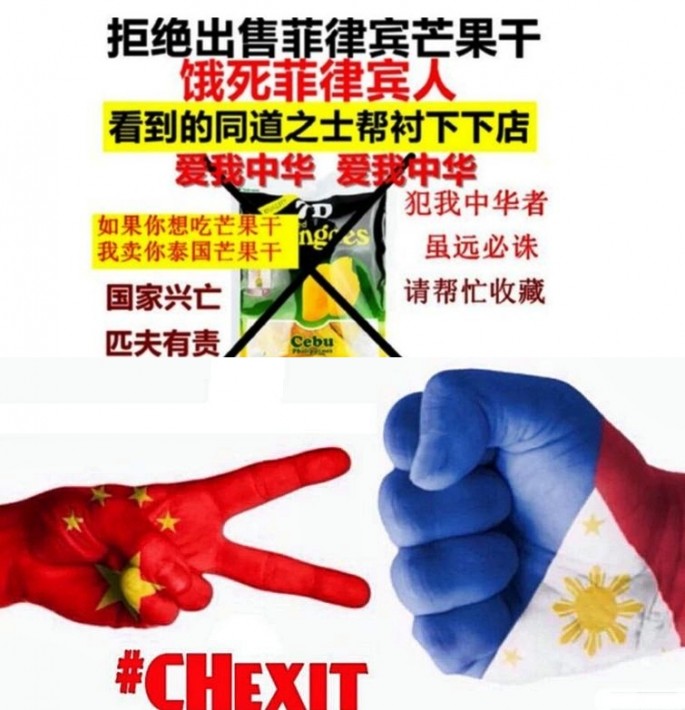The Chinese government's censors have gone into overdrive to delete posts on Weibo, WeChat and other popular social media sites calling for China to declare war against the Philippines and its chief ally, the United States.
The spike in ultra-nationalist warmongering follows China's defeat to the Philippines at the Permanent Court of Arbitration in The Hague. The arbitration tribunal on July 12 nullified China's "nine-dash line" claim, which China says proves its ownership of the South China Sea based on "historical rights."
Voting unanimously, the court upheld practically all the points raised by the Philippines, which filed the case against China in 2013.
"The Tribunal concluded that there was no legal basis for China to claim historic rights to resources within the sea areas falling within the 'nine-dash line'," it declared in a statement.
It also ruled none of China's reefs and holdings in the Spratly Islands entitle China to a 200 mile exclusive economic zone. The court said China had breached the Philippines' sovereign rights by endangering Philippine ships and fishing and oil projects. China has ignored the ruling, declaring it "null and void."
A mammoth wave of anger flooded Chinese social media sites and the internet after the ruling unfavorable to China was announced 5:00 p.m., Beijing time.
Many posts called for immediate retribution against the U.S. and the Philippines. One called for Chinese to boycott Apple's iPhones since China is Apple's largest foreign market. Another urged Beijing to "Struggle for every inch of land."
Some posts called on Chinese to boycott Filipino mangoes and mango products. "If you want to eat mango, buy Thailand's," said one post on Weibo. Another said "Starve the Filipinos to death."
Anti-censorship website Freeweibo, however, said the bulk of deleted social media posts were ultra-nationalist messages calling for war against the United States or the Philippines to defend China's territorial claims in the South China Sea.
Freeweibo (https://freeweibo.com/en/) provides uncensored and anonymous Sina Weibo Search.
"War is finally going to break out in the South China Sea," said one post before censors deleted it. "The South China Sea arbitration itself is an insult to China. Why would we wait for the result for this kind of crap? With such a large military, why don't we just go fight to get back (what is ours)?" said another post later deleted.
Analysts said Beijing is coming down hard on ultra-nationalists to dampen the risks to the ruling Communist Party of China that might arise from unchecked ultra-nationalism.
"The Chinese government tends to suppress grassroots nationalism when it wants room for maneuver in handling foreign incidents," said Jessica Chen Weiss, a professor of government at Cornell University who studies Chinese nationalism to Foreign Policy.
She said "censoring extreme voices is part of China's risk management strategy."
And, unbeknownst to many, the Communist Party's budget for internal security remains far larger than that for external defense.
China expert Dean Cheng who writes for the Heritage Foundation think tank revealed that for the past several years, "the internal security budget has grown more quickly than the defense budget, to the point where overall spending on internal security may outpace that for external defense."



























